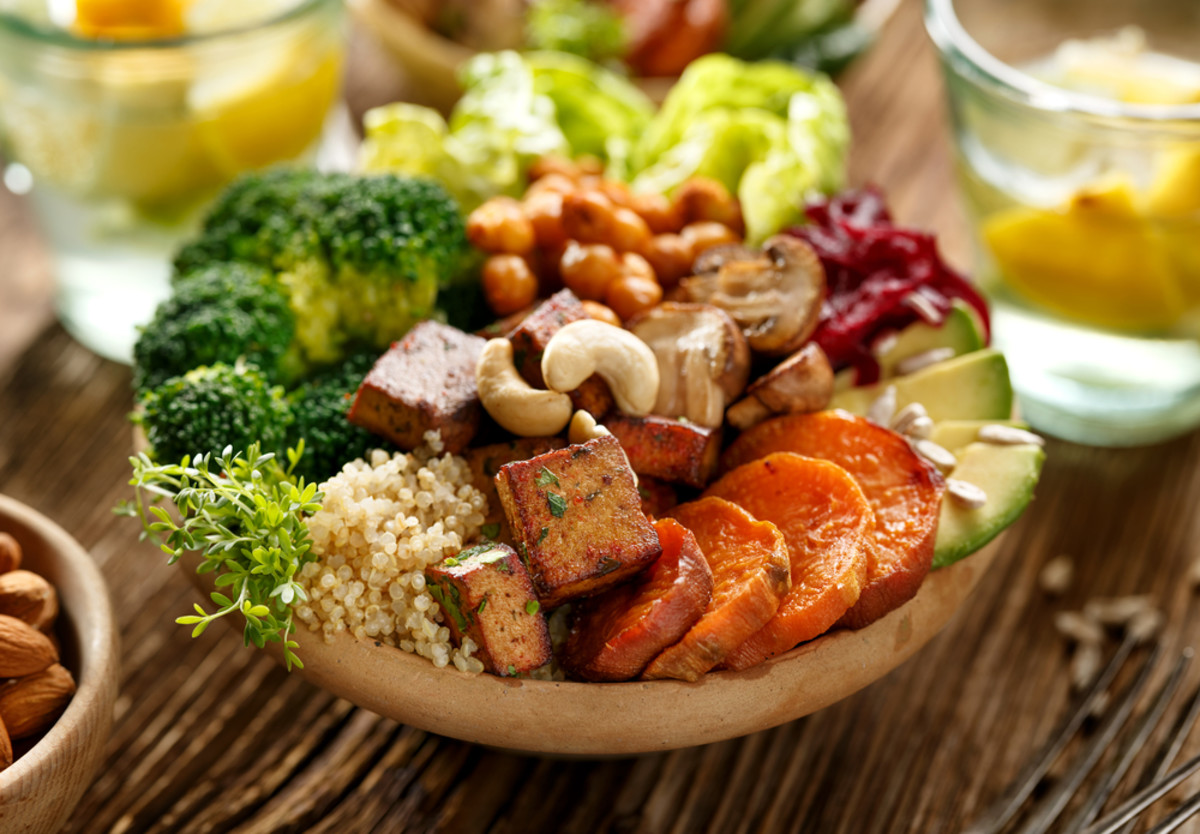HOME.
BACK.
Is eating less meat good for your body?
 The plant-based food trend has gained skyrocketing popularity over the past few years as vegetarian-friendly foods are sprouting up around the city. According to more than 100 United Nations scientists, eating less meat might be the best thing we can do for the planet - by switching from meat to a plant-based diet could significantly mitigate the climate change by contributing 20 percent of the effort to lower global temperature by 2 癈.
The plant-based food trend has gained skyrocketing popularity over the past few years as vegetarian-friendly foods are sprouting up around the city. According to more than 100 United Nations scientists, eating less meat might be the best thing we can do for the planet - by switching from meat to a plant-based diet could significantly mitigate the climate change by contributing 20 percent of the effort to lower global temperature by 2 癈.
Recently, "eating less meat" is flourishing even more as a series of events escalate - including the pricey pork caused by the African pig plague, the dying rainforest fire fostered by the rampant deforestation in Amazon. In response to this, a large number of international chain stores such as Burger King and KFC have made plant-based menus available -Macao is no exception.
One of the leading local resort developers, Sands China has also acceded to the movement by creating "Green Monday" in its properties. On Mondays, the plant-based meat alternatives include Omnipork, Beyond Meat and other healthy options are provided.
The "eat less meat" movement seems instrumental in saving the environment and yet, is it really good for your body?
 Sofia Lei is a national Class 1 registered dietitian, health manager in a local healthcare center, and nutrition columnist for Macao Daily. She said that eating less meat can tremendously benefit people's health in a long run, but fake meat might not be the best substitution for your health.
Sofia Lei is a national Class 1 registered dietitian, health manager in a local healthcare center, and nutrition columnist for Macao Daily. She said that eating less meat can tremendously benefit people's health in a long run, but fake meat might not be the best substitution for your health.
"Over-consumption of meat can generate increased toxin in a metabolism process in our body, and it is also responsible for being a leading cause of death such as colorectal cancer, heart disease and kidney disease," Lei said. "Humans have naturally developed to eat more plant-based food from a biological perspective."
"When we look at the canine teeth in our mouth, they are deteriorated and almost look like normal teeth - which indicates humans should eat more plant-based food instead of meat."
But how much effect should go into switching to a plant-based diet or vegetarian diet, the local dietitian emphasized the importance of food choices.
"The answer is always to supply the essential nutrients that the body lacks with a balanced diet on natural food," Lei said. "Healthy and balanced eating is especially indispensable for vegetarians. I have clients who suffered from weight gain and pale skin after becoming vegetarians, it is because they obtained an unbalanced diet like overconsumption of starch or a lack of iron."
When asked about the rising trend of fake meat, Lei advised consumers on the health value of these products.
"To make the fake meat palatable for customers, manufacturers have to add more processed ingredients like saturated fat into the "meat" with extra salt," she said. "Most plant-based meat is packaged and heavily processed which causes concern about its health risk especially it has gained incredible popularity in recent years amid the problems found in pork, beef and seafood."
Lei also pointed out a trend of "food additives" in ultra-processed foods like instant noodles and cured meat, which was later found to be seriously harmful to the human body.
"It is good that many people are switching from meat-based food to a plant-based diet in favor of environmental protection and even health and religion considerations. However, while the health risk still lies beneath the surface, coupled with tourism as the chief industry with glamorous images, "eating less meat" still has a long way to go in Macao," Lei said.